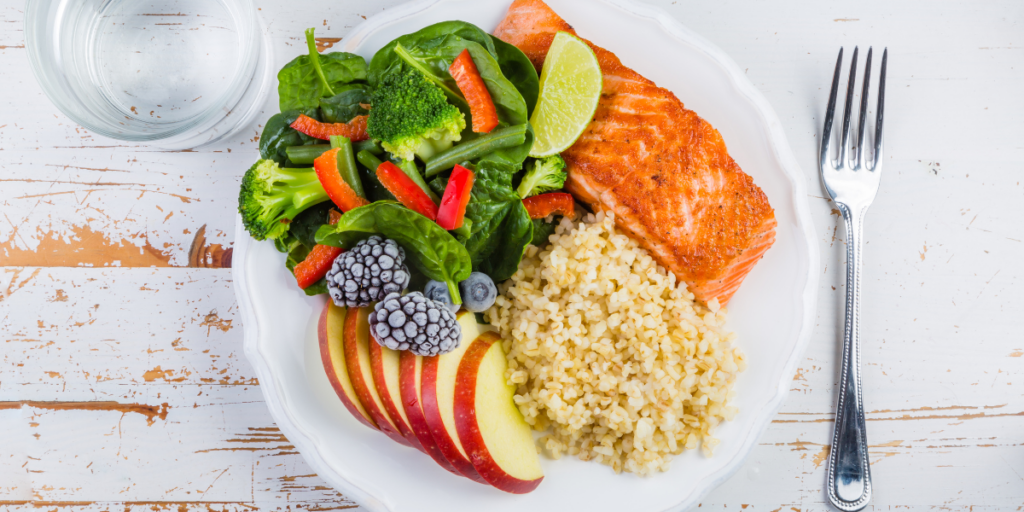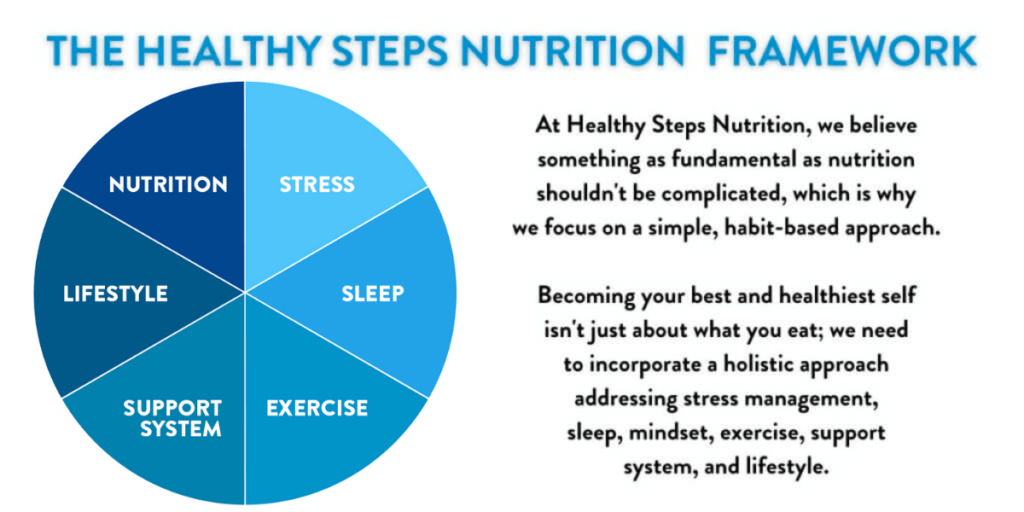Are you feeling sluggish and drained? Do your afternoons feel like a battle against sleep? Do you feel like every afternoon you are paddling up stream for miles in a kayak against the current?
You’re not alone. Fatigue is a common complaint, often stemming from a combination of a hectic lifestyle and unhealthy habits. But before you resign yourself to constant exhaustion, there’s good news! By addressing the root causes of your fatigue with simple adjustments to your nutrition and daily life, you can reclaim your energy and experience a more vibrant, productive day.
Keep reading if this is you!
In this blog post, we will highlight four key strategies for fighting fatigue and explore how poor sleep, stress and an unbalanced diet can contribute to daytime tiredness.

Understanding Three Major Culprits: Sleep Deprivation, Stress and Poor Nutrition
Our bodies are finely tuned machines, and sleep plays a vital role in keeping them running smoothly. During sleep, our bodies repair tissues, consolidate memories, and release hormones crucial for energy regulation. When we skimp on sleep, these processes are disrupted, leading to a cascade of negative effects, including fatigue, brain fog, and decreased productivity.
Build better sleep habits to help fight fatigue and have more energy.
Our nutrition also plays a significant role in how energized we feel. What we eat directly impacts our blood sugar levels, which in turn, affects our energy levels. A diet high in processed foods, sugary drinks, and unhealthy fats can lead to spikes and crashes in blood sugar, causing us to feel tired and irritable. Additionally, deficiencies in certain nutrients can contribute to fatigue and cause other symptoms.

Tip #1: Prioritize Sleep Hygiene for Restful Nights
Feeling tired sucks! A good night’s sleep is the cornerstone of fighting fatigue and boosting energy. Aim for 7-8 hours of sleep each night so you are not sleep deprived, and to allow your body to fully recharge.
However, simply spending more time in bed isn’t enough if you can’t fall asleep, or you continuously wake up.

Here are some tips to improve your sleep hygiene and develop a sleep routine:
Establish a consistent sleep schedule:
Go to bed and try to wake up at roughly the same time each day, even on the weekends. This helps regulate your body’s natural sleep-wake cycle (circadian rhythm).
Create a relaxing bedtime routine:
Wind down for 30-60 minutes before bed by reading a book, taking a warm bath, or practicing light stretches. Avoid stimulating activities like watching TV or using electronic devices. The blue light emitted by these devices can disrupt sleep patterns.
Optimize your sleep environment:
Make sure that your bedroom is very dark; it’s quiet and cool. Invest in blackout curtains, earplugs, and a comfortable mattress and pillows.
Tip #2: Fuel Your Body with Balanced Meals and Nutritious Snacks

What you eat has a direct impact on your energy levels. Ditch the sugary snacks, monster energy drinks, and processed foods. Instead, focus on a balanced plate that is rich in energy-boosting nutrients.
Complex carbohydrates:
Whole grains like brown rice, quinoa, and oatmeal provide sustained energy by slowly releasing glucose into the bloodstream.
Lean protein:
Sources like chicken, fish, beans, and lentils help build muscle and keep you feeling full for longer, preventing hunger-induced fatigue.
Healthy fats:
Include healthy fats like avocados, nuts, and seeds in your diet. These fats are essential for cell function and help promote satiety.
Fruits and vegetables:
These are packed with vitamins, minerals, and antioxidants that support overall health and can help fight fatigue.
Hydration:
Dehydration is a major contributor to fatigue. It’s important to drink plenty of water throughout the day in order to keep your body functioning optimally.
Tip #3: Manage Stress for a Calm, Energized Mind And More Energy

Chronic stress can deplete your energy reserves and negatively impact sleep quality. Here are some techniques to manage stress and improve your energy levels:
-
Regular exercise:
Physical activity may seem counterintuitive when you’re tired, but exercise releases endorphins, which have mood-boosting and energy-enhancing effects. Aim for at least 30 minutes of moderate-intensity exercise most days of the week.
-
Mindfulness and relaxation techniques:
Stress levels can be reduced, and practices like deep breathing, meditation, and yoga can calm your mind. Schedule time for these activities, even if it’s just for a few minutes each day. Doing so will boost energy levels and provide a little pick me up.
-
Identify and manage stress triggers:
It is crucial to recognize what triggers your stress. Develop coping mechanisms to address these triggers, whether it’s saying no to extra commitments or taking breaks throughout the day.
Tip #4: Listen to Your Body's Natural Rhythms and Recharge Wisely
Your body has a natural rhythm for energy levels. Recognizing these peaks and valleys can help you optimize your schedule for productivity.
-
Schedule demanding tasks during peak energy hours:
Most people experience their highest energy levels in the morning. Schedule important meetings, complex tasks, and challenging workouts during this time.
-
Embrace the midday slump:
Don’t fight the natural afternoon dip in energy. Take a short walk, stretch, or do some light activity to refresh your mind and body. Avoid heavy meals during this time, which can make you feel even more sluggish.
-
Prioritize breaks throughout the day:
Get up and move around every 60 minutes to improve circulation and prevent fatigue. Take a walk around the office, stretch at your desk, or grab a healthy snack. A sedentary lifestyle is also one of the causes of fatigue.
-
Listen to your body’s signals:
Don’t push yourself too hard. If you’re feeling exhausted, it’s okay to take a break or go to bed earlier. Pushing through fatigue can be counterproductive and lead to burnout. Understanding the causes of fatigue is important.
Wrap Up

We focus on a holistic approach to nutrition coaching at Healthy Steps Nutrition. We believe that more goes into someone’s nutrition choices than just deciding what to eat. Factors such as sleep, nutrition, lifestyle, stress, social circle, and exercise all play into what we choose to eat. If we have all these pillars working together in our daily lives, we are more likely to feel less tired and energized.
By prioritizing sleep hygiene, revamping your diet, managing stress effectively, and listening to your body’s natural rhythms, you can significantly reduce fatigue and experience a dramatic improvement in your energy levels. Remember, consistency is key. By incorporating these simple strategies into your daily routine, you can ditch the exhaustion and embrace a more vibrant, productive, and energized you!
Bonus Tip: Consult a Doctor if Fatigue Persists
If you’ve implemented these tips, feel like you are tired but don’t have trouble sleeping, make sure to visit a doctor to find out if there are other underlying issues, such as sleep apnea or other conditions.
Remember, taking care of yourself is not a luxury, it’s a necessity. By prioritizing your well-being, you’ll be better equipped to tackle your daily challenges and live a fulfilling life.
So, embrace these tips, conquer fatigue, and reclaim your energy!





